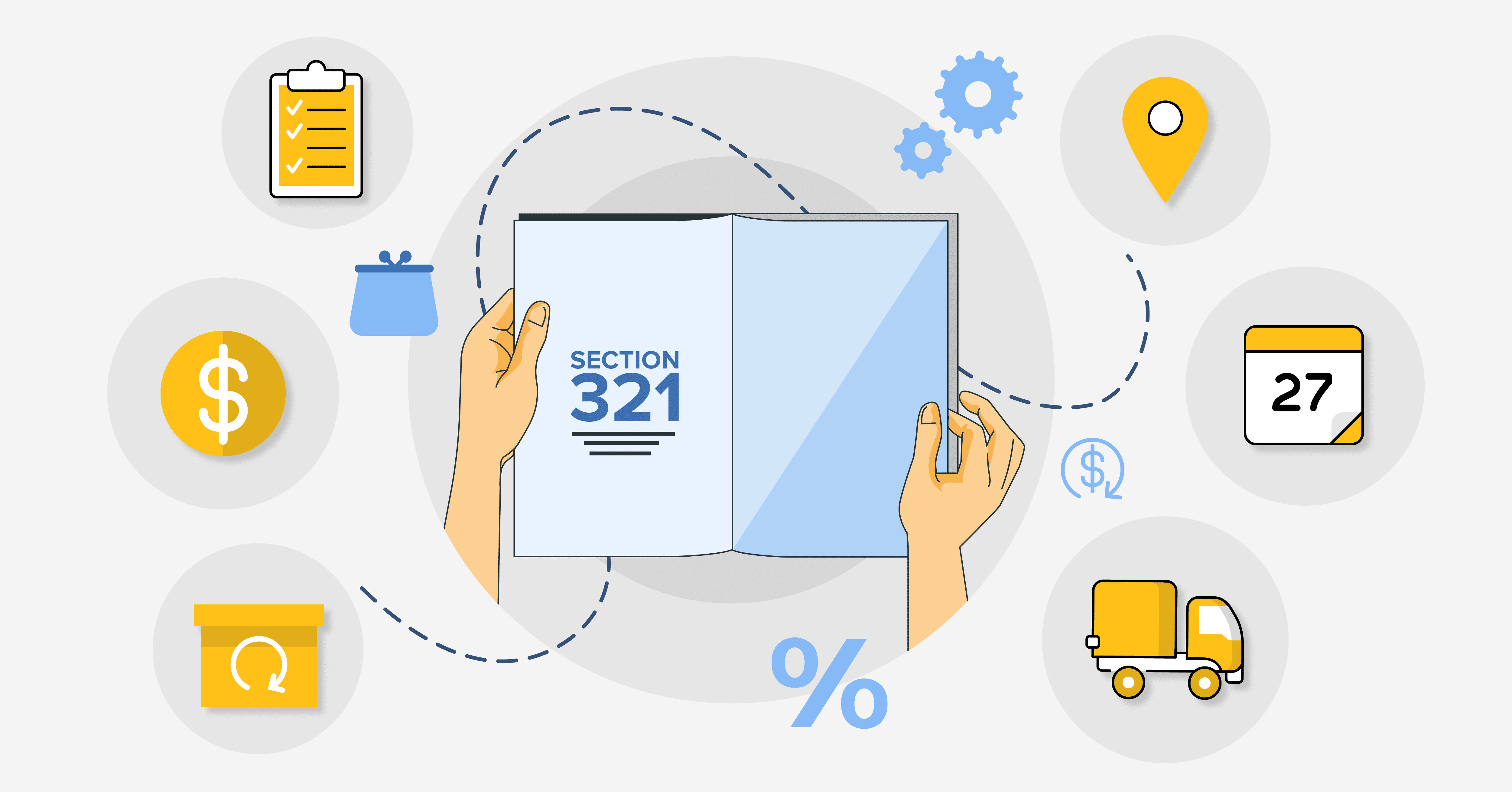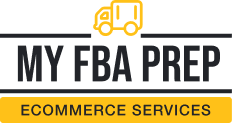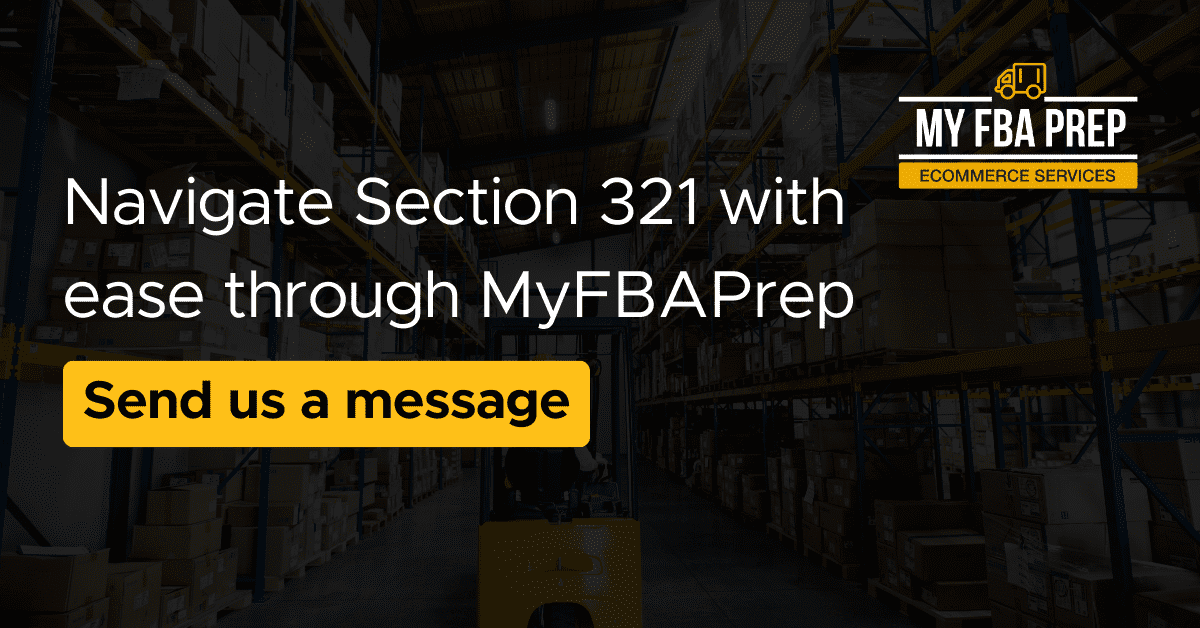
How to Use Section 321 in eCommerce: A Quick Guide

Improving your profitability by minimizing fulfillment costs and streamlining logistics is vital for any eCommerce business. On the other hand, when shipping your goods from overseas, such initiatives can become difficult.
These challenges can be attributed to customs duties and taxes, which make cross-border shipments much more costly. However, with Section 321, a law by the U.S. Customs and Border Protection (CBP), these issues can be avoided.
What is Section 321?
To start, Section 321 is a law by the CBP that allows low-value shipments to be cleared through customs free of any taxes and duties, with less paperwork.
It states the de minimis value, which is the worth of a shipment of goods imported by a single person in one day that may enter the US free of any levies. This de minimis threshold was changed by the Trade Facilitation and Trade Enforcement Act of 2015 (TFTEA) from $200 to $800.
In short, Section 321 is a shipment type that allows your business to reduce the cost and increase the speed of cross-border shipping into the US, as long as it meets the following criteria:
- First, your imported items should have a fair retail value below $800.
- Next, your shipping country should be covered by Section 321.
- And lastly, all of your shipment’s paperwork should be in order.
Benefits of Section 321
As for its primary benefits, we’ll quickly walk you through them.
Reduced business expenses
As it allows you to import products from overseas into the US duty-free and tax-free, Section 321 greatly reduces your international shipping costs. It also benefits your business as a whole, since it makes it more practical to produce or source your items from countries where the costs are less.
Streamlined international shipping
International eCommerce is huge. Over half (57%) of consumers, in fact, say they have made an international online purchase online in the past six months. With Section 321, shipping for such purchases will be better optimized.
Section 321 lets you import your items and have them cleared through customs with less paperwork. It speeds up the cross-border shipping process, minimizes delays, and allows you to get your products to customers quicker.
Having all of the necessary details ready, like proof of value and consignee information, for your shipment is one way of ensuring a smooth trip through customs. Section 321 is also able to streamline the shipping process thanks to its Entry Type 86 Test.
Entry Type 86 Test
This is a voluntary test that allows entries qualified for de minimis to be filed through an Automated Broker Interface (ABI). This ABI permits qualified participants to electronically file and import their data with CBP.
The advantages of the Entry Type 86 Test are:
- Predictable, same-day, automated customs clearance
- Data is provided through a manifest template via API or manual upload
- It’s ideal for low-value items (especially for imports from China)
- It has fewer requirements
- As long as they’re sent to a fulfillment center, your “unsold” DTC parcels under de minimis can be cleared without duties and taxes
Plus, with data and transactions being processed electronically, the Entry Type 86 Test accelerates the release of goods for its users. Messages about current information and issues are also sent to participants. Currently, more than 96% of all data entries are filed through ABI and it’s available to:
- Importers
- Brokers
- Port authorities
- Independent service centers
Flexibility
The previous benefits allow you to easily cater to the US market. It won’t cost as much and, as you can also speed up cross-border shipping, you can provide your customers with more affordable and faster shipping options.
Limitations of Section 321
It’s important to note, that Section 321 has various restrictions you should be aware of.
Every person is limited to one shipment a day
This limitation means you can only claim one Section 321 shipment per day, but it doesn’t mean that you can’t receive more than one shipment on the same day. Just make sure, that if you’re doing in-house shipping, you or your freight partner don’t make multiple claims on the same day.
A key point you should also remember is that shipments to business addresses aren’t covered by Section 321, which means you can’t make claims for anything similar.
It doesn’t cover every item under $800
The exemptions to duties and taxes that Section 321 provides are for goods with a fair retail value of less than $800 in the country of shipment. However, some goods aren’t covered. Here are some examples:
- Products that are covered by Antidumping and Countervailing Duties (AD/CVD)
- Alcoholic beverages, cigarettes, and cigars
- Items that require customs inspections (Like harsh chemicals and agricultural products)
- Goods that are regulated by US government agencies (Such as the FDA, FSIS, USDA, NHTSA, and CPSA)
Don’t forget that you must provide proof of your products’ retail values. Also, to comply with Section 321, each shipment must also have consignee names and addresses.
Importing from China
Due to their economic trade war, the U.S. has imposed import duties for products specifically from China. These Section 301 tariffs have increased levies on various items such as:
- Household products
- Sporting goods
- Food and beverages,
- Personal care items
However, your shipment can qualify to be covered by Section 321 and exempted from Section 301 tariffs, so long as your products meet the de minimis value.
How to use Section 321
As for how Section 321 can be utilized, we’ve outlined various examples below.
Offer affordable international shipping
Duty-free and tax-free customs clearance effectively reduces your cross-border shipping costs. This allows you to offer your customers cheaper shipping options, which is a vital aspect of eCommerce.
It plays such a huge factor that, in fact, 87% of online shoppers indicate shipping is the second-most important deciding factor for them when making a purchase, immediately after product price.
Provide faster shipping times
Section 321 shipments require less paperwork, minimizing any delays at customs. In turn, this means you are able to offer options where customers receive their orders much quicker, which can greatly benefit your business.
Speedy shipping also makes it easier for your business to land more online shoppers, especially with 27% of them saying they abandoned their online purchases because their orders wouldn’t be delivered quickly enough.
Minimize manufacturing or production costs
Not having to worry about duties and taxes allows you to manufacture or source your products overseas, for a lower price. In fact, compared to the US, manufacturing labor costs in countries like Mexico and China are significantly less.
Strategically locate fulfillment hubs
Doing this streamlines your supply chain, allowing you to move your items quicker. For example, you can locate your warehouses and distribution centers:
- Near your manufacturers
- Near your suppliers (for packaging or raw materials),
- In countries where manpower is abundant, yet cost-efficient
- In regions with less-congested ports
- Areas within reach of US borders (Like Canada or Mexico)
With fulfillment taking place over shorter distances and manufacturing in cost-effective regions, you significantly reduce your expenses and shipping times.
How to claim Section 321
Lastly, we’ll briefly take you through what a Section 321 claim typically looks like.
Step 1: Your U.S.-based customer places an order
To be entitled to Section 321’s duties and taxes exemption, your customer’s order should have a fair retail value of $800 or less. Once their order is placed, it will be sent out for shipping.
Step 2: Then, their order is sent across the U.S. border
If the shipment meets all of the requirements and has its details and paperwork in order, which the carrier will present to the border officer upon request, it should encounter no customs delays.
It should be able to enter duty-free, without formal entry, and will then be delivered to your customer’s chosen domestic carrier.
Step 3: Afterward, the customer receives their purchase
Finally, the domestic carrier is then responsible for accomplishing the order’s delivery. Afterward, you should receive a confirmation once your customer has received it.
Wrapping up — Experience seamless Section 321 shipping with SEKO Logistics and MyFBAPrep
Minimizing your costs and streamlining your shipping can make a huge impact on your business. Utilizing international shipping and trade laws like Section 321 is a great way of doing that.
It may get complicated, or sometimes daunting, but you don’t have to traverse it alone. MyFBAPrep works with SEKO Logistics to get our customers access to end-to-end services from Asia to the US — making Section 321 shipments so much easier.
MyFBAPrep customers can leverage Section 321 through SEKO thanks to the following:
- Its acquisition of AIRCITY Inc., a New York-based freight forwarder which is a leader in Entry Type 86 Customs
- Its US-customs-integrated SEKO-AIRCITY systems
- Its experience in Type 86 is a huge advantage for sellers and consolidators
What’s more, SEKO Logistics has a powerful compliance program at origin and destination. To learn more, get in touch!


